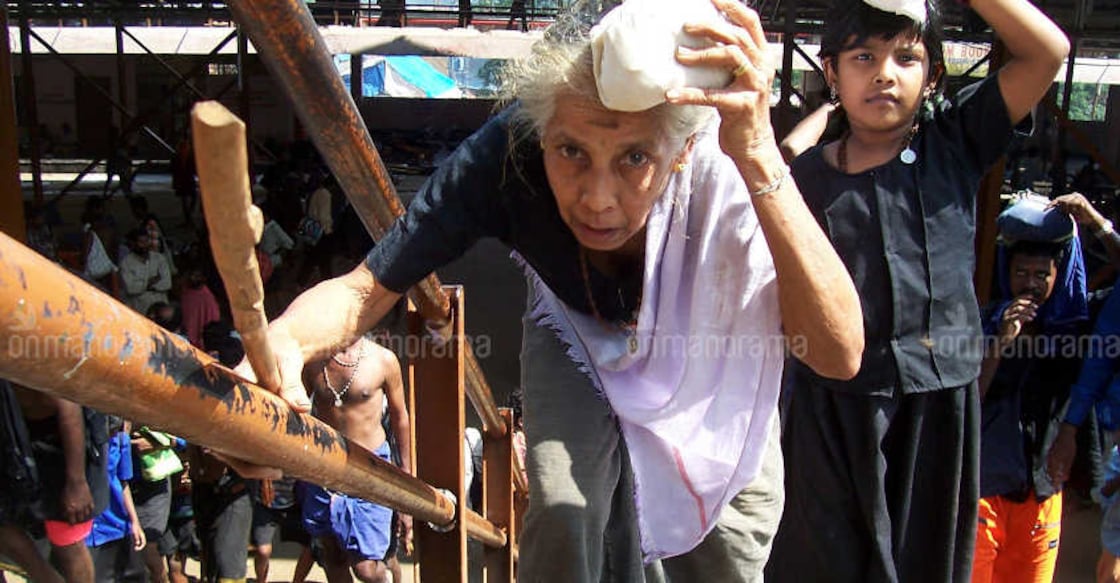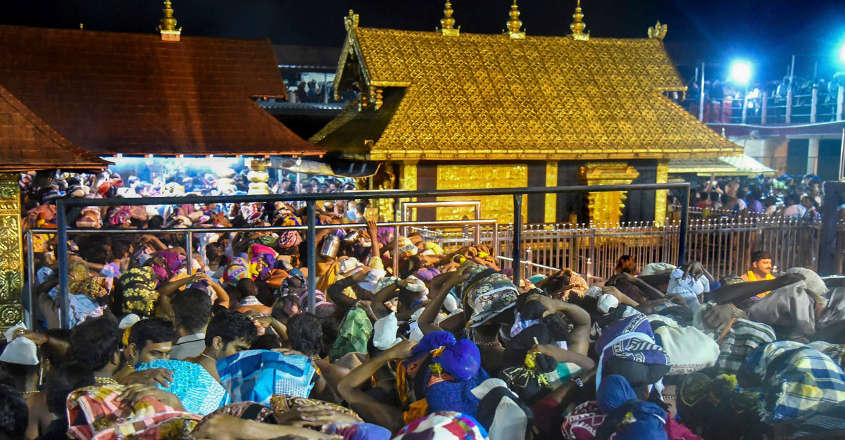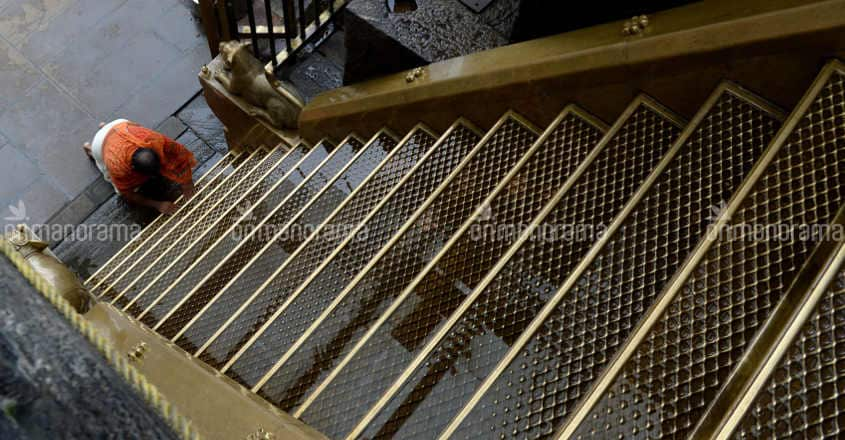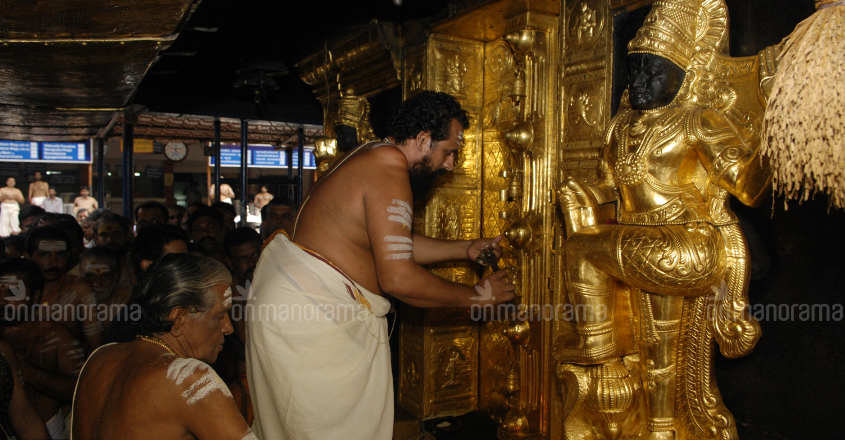Austerities that Ayyappa devotees need to practice

Mail This Article
The pilgrimage to Sabarimala shall be undertaken only after observing 41 days of penance. Both first timers and veteran pilgrims are required to observe the penance as they seek to see Lord Ayyappan, the dispeller of sorrow. Recent astrological findings in the temple mandated that even the officials posted at the temple on duty and the pilgrims who visit the shrine when it opens for monthly worships should also observe penance.
The penance for pilgrimage starts on the first day of Malayalam month Vrishchikam. As part of the penance, the pilgrim should take bath before sunrise, wear a sacred chain with a pendant with the image of Lord Ayyappa and give up luxuries of life. The pilgrim should observe celibacy, eat pure vegetarian food and avoid shaving.
Once the sacred chain is worn, the pilgrim is considered as the lord himself and is called Swami or Ayyappan.The 18-steps leading to the shrine are considered to be holy. The pilgrim should carry on his or her head a holy kit, irumudikettu, which has two compartments to carry ghee-filled coconuts and other articles to be offered to the lord.

While climbing the 18 steps or after that when moving towards the shrine, one should not push others in a hurry but should be disciplined instead. Darshan also has an order. The first to be visited is Lord Ganesha in the south-west corner, Nagarajavu (the serpent god) and goddess Malikappuram. Offerings are made after the darshan and pouring ghee over the idol is the most important among them. This will not be done post afternoon prayers.
Each prayer has a different system of offering. Early morning, before daybreak (nirmalyam) the idol with remnants of the previous day's offering is bathed eight times in different holy liquids (ashtabhishekam). The offering for the session is thrimadhuram (a mixture of three types of sweet), idichupizhinja payasam (rice pudding in coconut milk and jaggery), aravana (special preparation of rice and jaggery offered at Ayappa temples) and vella.
One needs to strictly observe the rules and rituals while going to the temple. Women between the age of 10 and 50 were not traditionally allowed to visit the temple. This is because Dharma Shashta, the Sabarimala deity, is a celibate. (Legend has that Lord Ayappa dissolved into Dharma Shastha.) The representatives of the royal family of Pandalam do not have to carry the irumudikettu while climbing the 18 steps. It is in the presence of the king that the deity is anointed with sandalwood paste, marking the end of makaravilaku (the concluding worship of the pilgrimage season).

The tantri who comes for makaravilakku pooja is received at flight of the 18 steps by the chief priest by washing his feet.
Mandalapooja and Makaravilakku are the two most important rituals here. Mandalapooja falls on the 11th of Malayalam month of Dhanu. On the Mandala worship day the idol is decorated with golden ornaments offered by the king.

Makaravilakku falls on the day of Makar Sankranti, marking the end of winter solstice. Apart from the special worship, the deity decked in holy jewels and ornaments is worshiped with lights lit all around the temple at sunset (deeparadhana).
The jewels and ornaments to be used for the deeparadhana pooja are brought in a ceremonious procession from the Pandalam palace. Malikkapuram deity is taken out in procession for three consecutive days starting from Makaravilakku.
The main auspicious days of the temple are Vishu darshanam on the first of Malayalam month Medam, offering of the first harvest of paddy (niraputhari), Chithira aatta thirunaal and Painkuni Uthram (the birthday of Lord Ayyappa). The culmination of the 10-day annual festival of the temple falls on the birthday of the Lord, Painkuni Uthram of the Malayalam month of Menam.


